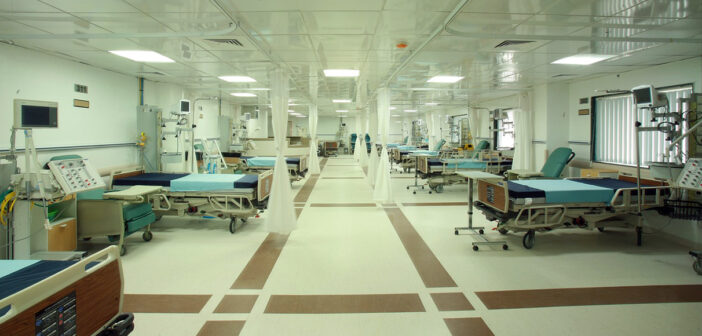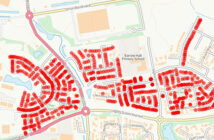DESPITE significant ongoing seasonal pressures across the NHS, patients in the North West are benefiting from the roll out of over 680 additional permanent staffed beds this winter.
Last year, the NHS committed to delivering an additional 5,000 ‘core’ beds across the country as part of its urgent and emergency care recovery plan. ‘Core’ beds are beds that are permanent, and regularly staffed, so can be sustained over winter, as opposed to temporary ‘escalation’ beds that are used during periods of extreme pressure.
New figures show hospitals across the North West had an average of 14,890 ‘core’ beds in place each day, 689 more than it had at the start of the year, delivered in time to align with the expected peak in hospital admissions for COVID-19 and flu.
The significant boost means the NHS in the North West now has more general and acute beds in place in its hospitals than it did during the same time period last year to care for our sickest patients.
Dr Michael Gregory, Regional Medical Director for NHS England – North West, said: “We’re so grateful to our NHS staff for the remarkable work they continue to do to care for patients in the region, despite the challenges they have faced responding to increased winter pressures this year, growing demand and more people with seasonal viruses, and the impact ongoing industrial action has had.
“It has been a year since the launch of our urgent and emergency care recovery plan, which set out a blueprint for the way the NHS intended to improve services and boost capacity with additional beds, new ambulances and new ways of working.
“There is still a lot of work to do and we will continue to look at ways to expand our capacity in the coming months, but the work done to date has made a real difference and will have improved our ability to provide care for those people sick enough to end up in our hospitals this winter.”
Demand for beds across the North West remains high with new figures published by NHS England showing the number of people in hospital beds with flu is higher than it has been all winter.
Flu and Norovirus continue to be a concern, with the number of people being treated for both remaining high across the region.
In the week beginning 22 January, there were an average of 366 people with flu in hospitals each day in the North West, 27 percent more than the week before when there were 288 people in hospital beds with the virus and higher than the previous month.
In the year since the launch of the urgent and emergency care recovery plan, the NHS in the North West has rolled out a number of initiatives to support the delivery of services to patients, including Same Day Emergency Care Centres and Urgent Community Response Teams. NHS teams have also expanded the number of virtual wards ‘beds’ across the region to 1,300, providing care to frail patients, those with acute respiratory infections and chronic obstructive pulmonary disease (COPD), heart failure and even some paediatric conditions in the place they call home.
Although demand for urgent and emergency services has continued to rise during this period – with the North West Ambulance Service taking 48,726 people to hospital in December 2023, compared with 43,722 in December the previous year – category 2 ambulance response times have improved and were on average34 minutes faster than in December 2022.
One of the ongoing challenges in the NHS are the number of patients occupying hospital beds who no longer need to be there. Across the North West there are regularly thousands of patients in hospital beds who no longer need the care a hospital provides.
This figure climbed as high as 2,400 people in hospital beds who no longer needed to be there at times this winter, even higher than the 2,200 figure the NHS in the North West hit regularly last winter.
Hospitals across the region, however, have been dedicated and innovative in the efforts to increase capacity and address these challenges, with Liverpool University Hospitals NHS Foundation Trust opening an additional 58 general and acute beds across their hospital sites.
Mersey and West Lancashire Teaching Hospitals NHS Trust opened 44 additional beds, Mid Cheshire Hospitals NHS Foundation Trust an additional 27 beds, and Mersey Care NHS Foundation Trust 69 more beds at its sites.
All of these new beds help deliver more care to the region’s patients and deal with the increased pressure the NHS has been under this winter.




